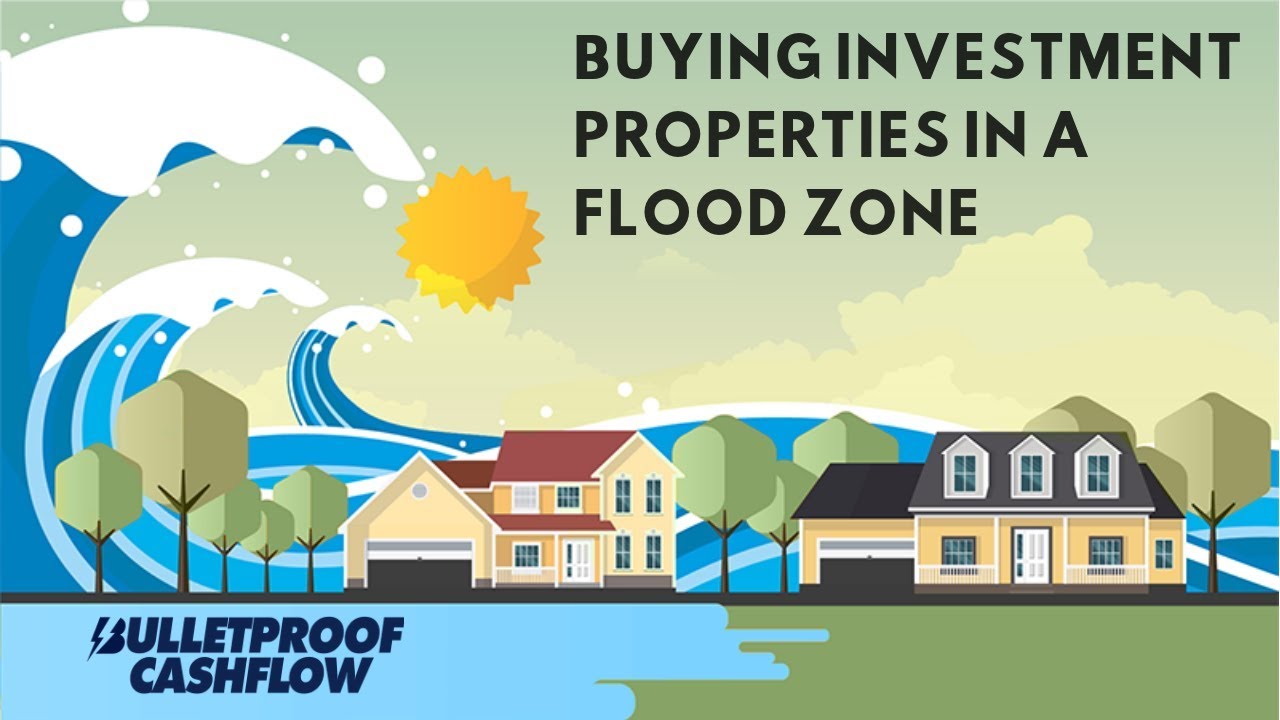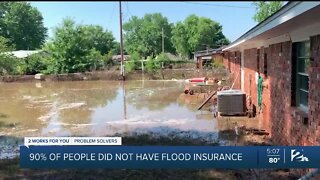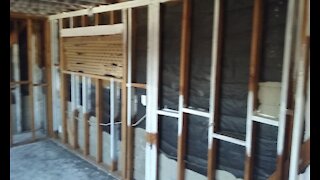Premium Only Content

Buying Investment Properties In a Flood Zone
I kicked off my real estate career in Virginia Beach about 15 years ago. If you know anything about Virginia and the Carolinas is that they are prone to hurricanes. I was living in Virginia Beach when one of the biggest hurricanes, Hurricane Isabel, hit in 2003. It caused over $1.9 billion in damages. More recently in 2017, Hurricane Harvey and Irma devastated Texas, Louisiana, and Florida all in a two-month period and $175 billion in damage. In 2018, Hurricane Florence did almost $19 billion in damage in the Carolinas.
The economic losses caused by hurricanes are no joke. As real estate investors, we must consider the possibility of flood damage in certain regions where we buy properties. A property located in a flood zone doesn’t necessarily mean we shouldn’t buy it. However, you need to perform deeper due diligence so that if a flood or hurricane hits, you are prepared, and the investment isn’t negatively impacted.
You can purchase insurance for properties located in high-risk flood zones. In some cases, it is required by federal law to have insurance. There are maps that outline where the flood-zones are in each area.
However, with super hurricanes, like Katrina, many neighborhoods were not even considered flood-zones. Since it wasn’t required, people didn’t buy any. After that hurricane hit, many families were hit with not only the financial burden of losing their home but also putting their lives back together. According to the Federal Emergency Management Agency, or FEMA, over 20 percent of all flood insurance claims come from areas outside of designated flood zones. If you have an investment property on the border of a flood zone or in an area of a state prone to hurricanes, you will still want to consider flood insurance to protect your asset. There are resources online where you can check if an address is in a flood zone. If you are not sure, ask your insurance agent if the property is at risk for flooding.
When you compare the potential loss to your premium, it’s inexpensive. Over the past 10 years, the average flood claim has been more than $46,000 with annual totals averaging $3.5 billion per year. When you consider the damages done to a large multifamily deal, this figure will be much larger. For residential people out there, a flood policy may run you $600/year for a small residential building. Among all the natural disasters, I chose to talk about flooding in this video because according to FEMA, approximately 90% of all disaster-related property damage is from flooding.
As for considerations you need to take into account when buying the insurance: Again, you need to determine if the property is in a flood zone during the underwriting process and get the cost before you buy the deal. Also, make sure you are clear on the coverage and the limits of a flood policy. Depending on the size of the deal and your investment targets, the cost of insurance may eat up a larger portion of your expenses, so due diligence is important.
It’s worth noting that flood insurance is not covered with your basic policy. And if the property is in a high-risk flood zone, you may be required to have insurance by the lender before you can close. Again, if you are operating in a place prone to hurricanes and other adverse weather conditions, know what you are getting into during your due diligence phase.
If the property is in a moderate to low risk flood zone, or even on the border of one, get a quote for insurance. I personally would build it into my expenses and purchase it. Having personally lived in a state prone to hurricanes, I’ve seen it displace families and businesses alike. I still have properties in Virginia and my policy covered damages of over $100k to one of my smaller properties. It not only covered the physical damage but also the loss of rents as it was uninhabitable while under repair. It was well worth the investment I’ve made over the years.
As real estate entrepreneurs, we need to take time to plan. The same way you underwrite, perform your due diligence and line up financing, insurance needs to be closely considered. Take the time to figure out if you need insurance and how much. Err on the side of caution if the premium makes sense. Doing so can save you tens of thousands of dollars and countless hours of time.
Have you ever been hit with a flood? How did you handle it? Please let me know in the comments. Also, check out our podcast on iTunes and Stitcher and subscribe to the new YouTube channel. We are working on getting new content out every day to help you build your success in the world of multifamily.
Be great.
-
 1:03
1:03
The Exeter Group of Companies
4 years agoDid you miss episode 7 of Go Ahead, ASK!?
14 -
 2:54
2:54
KJRH
5 years agoLiving in flood plains now means buying insurance for many
13 -
 27:16
27:16
Investor Guys Podcast
4 years agoDamaged Properties
205 -
 10:01
10:01
Come on let's play!
4 years ago $0.01 earnedMagnet Properties
250 -
 28:14
28:14
Investor Guys Podcast
4 years agoVacation Properties
367 -
 26:20
26:20
Investor Guys Podcast
4 years agoEvaluating Properties
256 -
 0:51
0:51
Jorge Roque Real Estate Broker
4 years ago $0.01 earnedBuying a home
107 -
 3:52
3:52
Uriah Stepp | Your Realtor®
4 years agoHome Buying Checklist
65 -
 0:40
0:40
Real Estate Training for Investors
4 years ago $0.01 earnedInvestment Property Trainer
2922 -
 0:30
0:30
LynnLeaders
4 years agoHeartland Properties Family
42